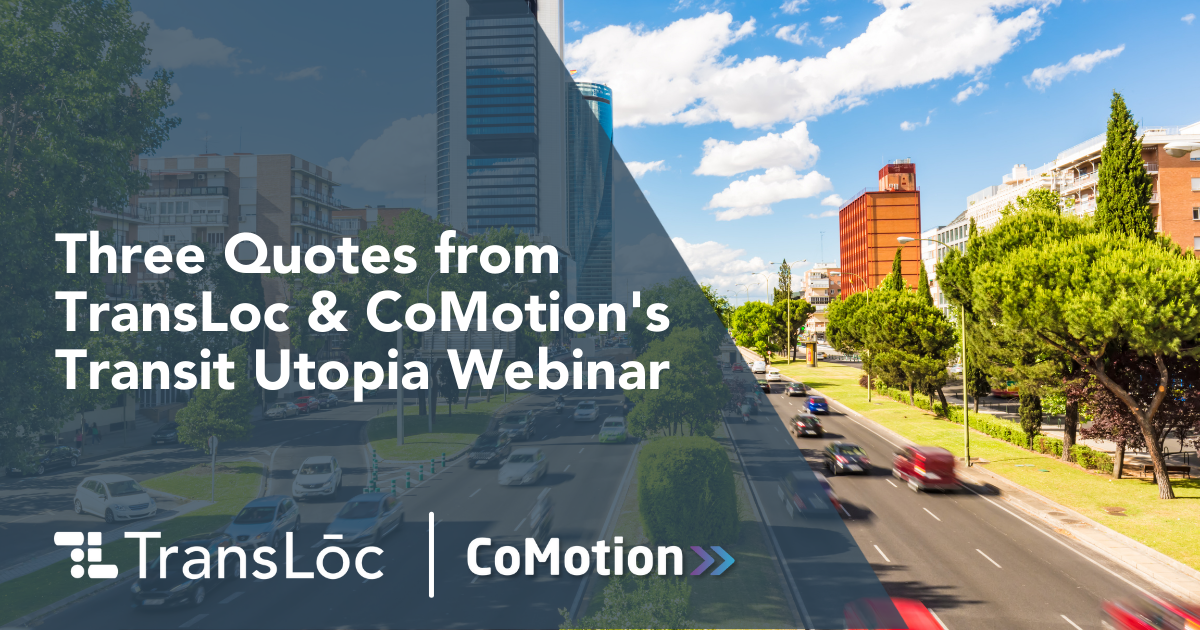
The Transit Utopia may no longer be exclusive to the dreamers.
On August 11th, Tyler Means and Austin Stanion — two of our AICP-certified planning and design strategists — partnered with CoMotion for the webinar Transit Utopia: Where Movement Meets Possibility. The riveting discussion produced thoughtful perspectives and strategies about mobility data, community engagement, and equitable transportation.
The big takeaway? The current generational investment happening in public transportation is a golden opportunity for transit planners to think differently, act strategically, and implement a connected mobility ecosystem that — for the longest time — communities could only dream of experiencing.
Here are three quotes that stuck with us.
“[Transit planners] have to be inclusive of community challenges … we have to go beyond our transit environment and really incorporate ourselves into these challenges.”
– Tyler Means [11:08]
Political leaders, employers, and educators all have a vested interest in optimizing how people access their services. Decisions about transit solutions should not be made in a silo; all stakeholders need a seat at the table. That’s how to create universal buy-in and shared values in community development.
“Data is the tool by which we will transform [our transit systems], but riders are the reason … we cannot make decisions based on data alone.”
– Austin Stanion [41:08]
Data is crucial in optimizing transit systems, but so are the lived experiences of riders. Creating an equitable transit system means not only analyzing quantitative route data like ridership fluctuations or on-time arrivals, but also leaning on community engagement to produce qualitative data — the why behind the choices riders make. Riders need a platform to share their needs, and those needs must influence transit services.
“We should not only be engaging with riders, but we should include them in the decision-making process … give them the data they need.”
– Austin Stanion [41:44]
Riders are stakeholders in community development too. They deserve access to the data that is being used for community development decisions and transit services. Municipalities should follow in the footsteps of the city of Los Angeles by offering open data that anyone can access and interpret. Empower current and future community leaders by training advocacy and youth groups on how to analyze city datasets. These transparent strategies build mutual trust and encourage community development where all voices are heard and appreciated.
Tell us your favorite quote by registering (for free) to watch the webinar at CoMotion, and then using #TransitUtopia on social media.